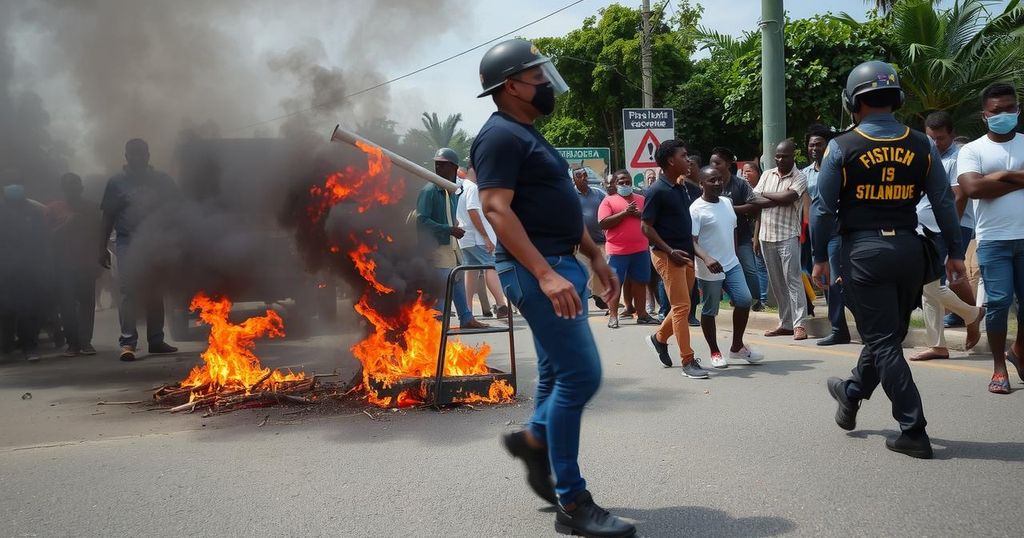Mozambique Protests Leave Over 110 Dead Amid Claims of Election Fraud

In Mozambique, protests following a disputed election have led to over 110 deaths as rights organizations report violent crackdowns by security forces. The unrest, sparked by allegations of electoral fraud and the assassination of opposition officials, has resulted in thousands of arrests and an escalating need for accountability from the ruling party, Frelimo.
In Mozambique, over 110 individuals, including children, have lost their lives amid ongoing protests following a disputed election, according to rights organizations. Since the presidential election held on October 9, which the opposition claims was rigged, unrest has escalated significantly, particularly after the assassination of two opposition officials on October 18. Security forces have reportedly shot and killed protesters, leading to a growing condemnation from civil society and international observers.
The protests, which have persisted for nearly two months, are characterized by acts of civil disobedience, including road blockades and the destruction of property linked to the ruling Frelimo party. The situation has led the Mozambican army to be deployed in efforts to contain the unrest, which initially began as peaceful demonstrations against the alleged electoral fraud. Opposition leader Venancio Mondlane has fled the country due to safety concerns but continues to advocate for the protests via social media.
International human rights organizations, including Amnesty International, have condemned the violent response of state security forces, highlighting that approximately 357 individuals have been shot since the protests began, alongside more than 3,500 arbitrary arrests. The Frelimo party, which has held power since the country’s independence from Portugal in 1975, faces an unprecedented challenge to its authority amidst claims of election rigging and an apparent crackdown on dissent.
Mozambique has a history of political unrest and civil conflict, having experienced a protracted civil war that lasted from 1977 until 1992. This background is pivotal to understanding the current situation wherein the governing party, Frelimo, has maintained a tight grip on power through accusations of election fraud and suppression of opposition. The assassination of key opposition figures and allegations of electoral malpractices have added fuel to the agitation among citizens who are demanding accountability and transparency from their government. As protests escalate, the historical tension between the Frelimo party and opposition groups resurfaces, indicating a critical juncture in Mozambique’s political landscape.
The ongoing protests in Mozambique signify a critical moment in the nation’s political history, as a significant portion of the population expresses dissent against perceived government misconduct in the electoral process. With mounting casualties and increasing international scrutiny, the Mozambican government’s response will be crucial in determining the future stability of the region. The situation remains volatile, and the calls for continued protests indicate ongoing unrest and demand for reform in governance.
Original Source: abcnews.go.com







